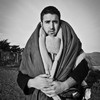Three of Wikileaks founder Julian Assange's staffers face charges that lean on the Espionage Act. Photo via Flickr user New Media Days
Annons
Annons
Annons
Jon Eisenberg: The threat of prosecution under the Espionage Act is really powerful, and I've faced it myself. In both of these cases – Al-Haramain and Dhiab v. Obama – I have seen classified information that I believe should be at least partially released to the public for the good of the country. But if I speak out and describe those videotapes, I go to prison. Or like [WikiLeaks founder] Julian Assange, I end up living in some embassy somewhere. And I'm not willing to do that.It amazes me that someone like Edward Snowden is. He was willing to irrevocably change his life to do something that he thought was really important. I'm not willing to do that. So it means I have to litigate within the system.Right now, we are litigating within the DC circuit [court] whether or not the force-feeding videotapes [from Guantanamo Bay] should be released to the public. I have to litigate in the system where it is not a level playing field. The government has the advantage at every turn. They can whisper in the court's ear, in a way where I can't listen in, and, jeez, that's frustrating. But there aren't many who are willing to go to prison.Justice Department officials have described the issue with prosecuting Julian Assange as the " New York Times problem." Basically, if they indicted him for publishing classified information, they'd also have to indict other news organisations that have published classified materials, like the Times, the Washington Post or the Guardian. When there were only a few channels and newspapers, the freedom of the press was pretty cut and dry. But what has changed now that there are so many news channels and internet news sources?
Hmm, that's interesting. So, I can't tell you, in this interview, what's in the force-feeding videotapes. But let's say I start a blog, and suddenly I'm a journalist and I could describe in the force-feeding videotapes as a journalist? Well, I think if I tried that, I'm going to lose that fight and I would go to prison. But the line has definitely been blurred.
Annons
I've really only thought about things case by case: How close am I to getting myself thrown in prison? For example, the New Yorker did a story about Al-Haramain, [by] a really excellent journalist named Patrick Radden Keefe. He wanted the document. For him, that was the story. And he wanted me to tell him classified information. And, God, I came close. I really did. It was so tempting, because it was so important. I didn't know where the line was. But at some point I realised I was about to cross it, and I pulled back. And what caused me to pull back was fear, period. Fear of prison. As a lawyer, early in my career, I spent time visiting clients. I do not want to go to prison. I'm too old. I got a wife and I got a cat who depend on me.God, where's the line? I don't know. But I think when it's clear that somebody is walking that thin line with good intent—not to hurt the country, but to help it—I think the benefit of the doubt should be given to the journalist, to the blogger, to whoever.I mean, Snowden did something very brave. He didn't do it to hurt the country, that's for sure. He did it because he thought it had to be done to help the country. That should count for something. And what he did has led the Obama administration to pull back. So it's proving to be very helpful. I mean he did not set out to hurt this country, anymore than I set out to hurt the country litigating Al-Haramain, or trying to get people to have their eyes open to what's happening at Guantanamo.
Annons
Well, the Espionage Act goes back to 1917. The abuse began early during the Red Scares of the early 1920s by Mitchell Palmer, the attorney general, and I think has waxed and waned over the years. But it has never been abused as much in the last 15 years, since 9/11. And it's so disheartening to me that this abuse has been not just by Bush, but also by Obama. Not just by a Republican, but by a Democrat. I mean, it makes you feel like there's no hope. Obama just doesn't want to look back at the abuses. I think a lot of that is immense pressure on him by the CIA and the Department of Defense to the point where you wonder who's in control.I guess the broader question is: Why is the Obama administration pursuing whistleblowers far more vigorously than even George W. Bush did? Why is Obama even worse on national security issues and privacy issues than George W. Bush? Does Obama really want to expand the power of the National Security Agency and the CIA? Does he really want to protect the CIA from accountability for torture ten years ago? Or the Department of Defense from accountability at Guantanamo Bay to this day? What's this all about? Why is Obama so awful on these issues?The sick irony is that the only person who went to prison as a result of the CIA's torture of detainees was the whistleblower, right? So the Espionage Act is the threat used to do two things: frighten people into not talking, and punish people who do. Keep the secrets. Keep the secrets. This from the "most transparent administration in history."Joseph Bien-Kahn is a freelance reporter based out in Oakland. He's had articles published in the Rumpus, No Tofu and the Believer. He's also editor-in-chief of the Bay Area literary mag OTHERWHERES. Follow him on Twitter.
